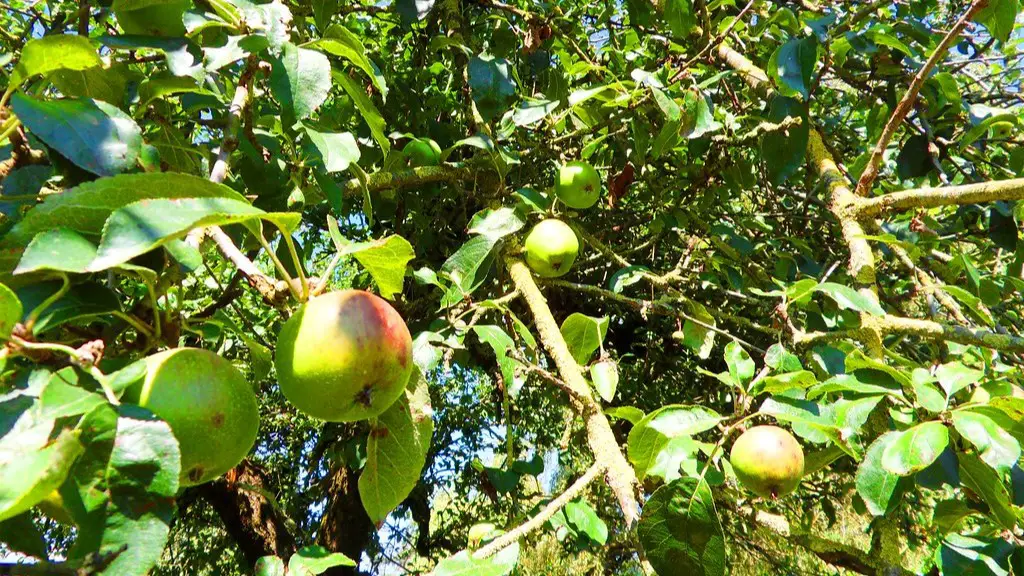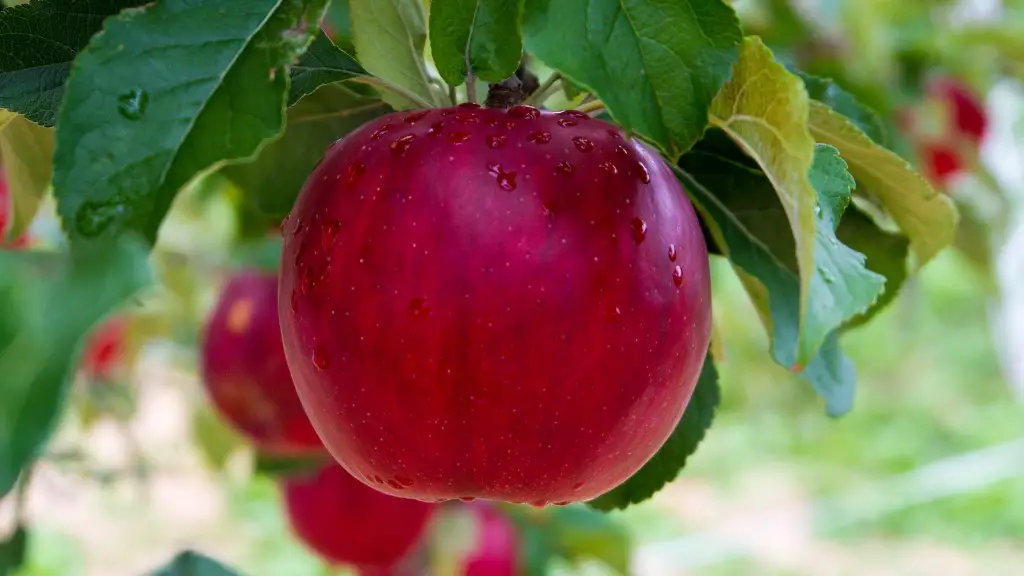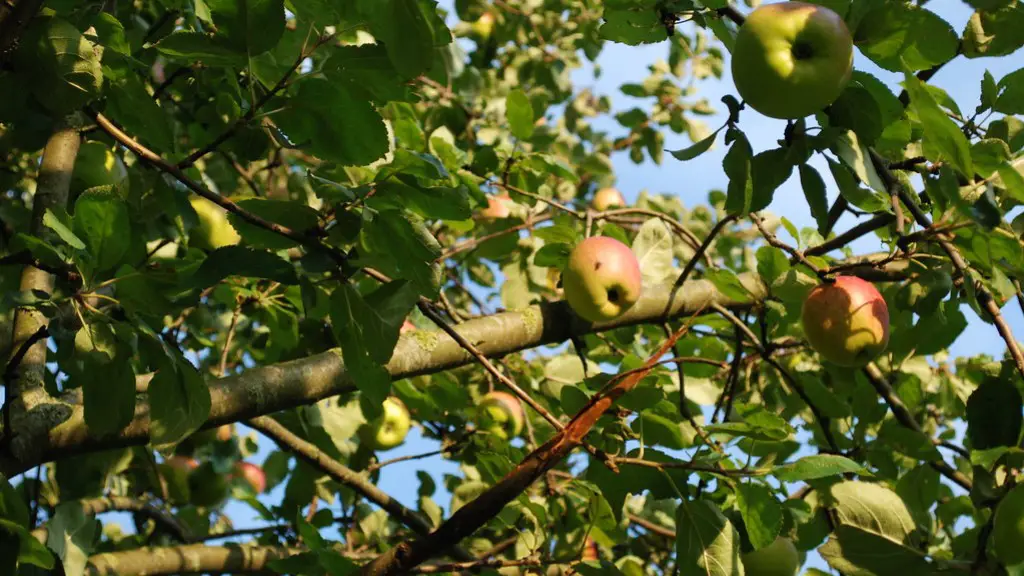Background Information
Raccoons are a species of medium-sized mammals found in North and Central America. They can be identified by their black fur and distinctive black ‘mask’ around their eyes. While raccoons can be beneficial for the environment by eating insects and grubs, they can also be a nuisance to gardeners. Raccoons are particularly fond of cherries, and can easily climb trees to reach them. This can be particularly frustrating for gardeners who’s cherry trees bear fruit only to have them stolen by raccoons.
Raccoon Proof Fencing
The most effective way to keep raccoons out of your cherry tree is to erect a fence around it. If you don’t want to build a permanent fence, you can opt for a temporary electric fence. This type of fence consists of short, thin metal poles that are driven into the ground and strung with electric wire. The poles should be at least 6 feet tall to deter raccoons, and the wire should be checked occasionally to make sure it is working properly.
Repelling Raccoons with Sounds and Smells
Another method for keeping raccoons away from your cherry tree is to use sounds and smells to deter them. Loud noises, such as radios and alarm systems, can be used to scare raccoons away from your tree. Additionally, you can scatter potent smelling substances around the base of the tree, such as mothballs, ammonia, or vinegar. These smells can be unpleasant for raccoons and should help deter them from coming near your tree.
Cleaning Up Around the Tree
Raccoons are often attracted to trees that have fallen fruit or rotting vegetation around them. To further discourage them from entering your cherry tree area, it is important to keep the area clean by regularly removing fallen fruit and decaying vegetation. This will not only help keep raccoons away, but it will also help to keep the area around your tree healthy and looking its best.
Prune and Trim the Tree
Prune your cherry tree regularly and remove any low-hanging branches that could serve as an easy ladder for raccoons, as they are adept tree climbers. If a raccoon can easily reach the cherries on your tree, it is more likely to try and get them. Pruning your tree can minimize this risk.
Discourage Visits with Water
Raccoons do not like to be wet, so you can use a hose or water sprinklers to create a barrier around your cherry tree. Setting up a motion-activated sprinkler system is an inexpensive and effective way to keep raccoons away. The sudden movement and jets of water will startle the raccoons and make them think twice about climbing the tree.
Set Traps
If all else fails and you still find raccoons in your cherry tree, you can attempt to trap them using humane methods. Live cage traps can be purchased and baited with food, such as fish, to lure the raccoons inside. Make sure to check local laws regarding trapping before attempting to do so. Once trapped, check to see if the animal is injured or too young to be released on its own. If so, call a wildlife rehabilitator for help.
Trapping Professionals
If you are not comfortable with trapping or do not have the time, you can hire a professional wildlife removal company to do the job for you. Professionals have the proper tools and knowledge to safely and humanely trap the raccoons. The cost of this service can vary widely, depending on the size of your property and the number of raccoons you have.
Protection Through Deterrence
When it comes to keeping raccoons away from your cherry tree, the best prevention is deterrence. By making your tree area as unappealing to raccoons as possible, you can prevent them from climbing your tree in the first place. Try erecting fences, using scent and noise deterrents, cleaning up around the tree, pruning and trimming branches, and making use of water sprinklers to keep raccoons away.
Garbage and Pet Food
One of the main attractions for raccoons is finding food sources. To prevent raccoons from rummaging through your trash and pet food, be sure to keep these items securely stored away. Store garbage in a sealed container and only leave pet food out when your pet is eating it. Doing this will help to keep raccoons away from your home and out of your cherry tree.
Pest Control Products
If all else fails, there are a variety of pest control products on the market that can be used to keep raccoons away. These include sprays, traps, and deterrents. Be sure to read the labels closely and follow all instructions when using these products. It is important to keep in mind that some of these products can be toxic and may be considered illegal in certain areas, so be sure to check your local laws before using them.
Deterring Wild Animals
Another option for deterring wild animals from your cherry tree is to create a barrier with plants. Planting strong smelling plants, such as garlic and peppermint, around your tree can help to keep raccoons away. This method may not be effective for all animals, but it can be helpful with raccoons as they are usually deterred by strong smells.
Harassment Techniques
If you find a raccoon in your cherry tree, you can try to scare it away. Using bright lights, loud noises, and water will often do the trick. You can also try adding a few rocks around the tree, as the sound of them being kicked around can be disruptive and make the raccoon uncomfortable. Just be sure not to startle the animal too much, as this can stress it out and might cause it to become aggressive.
Professional Advice
If all else fails, contact a professional for help. An experienced trapper can help to remove any raccoons in your area and will advise you on the best techniques and products to use to keep them away from your cherry tree. They can also provide advice on how to minimize the chances of the raccoons returning.



